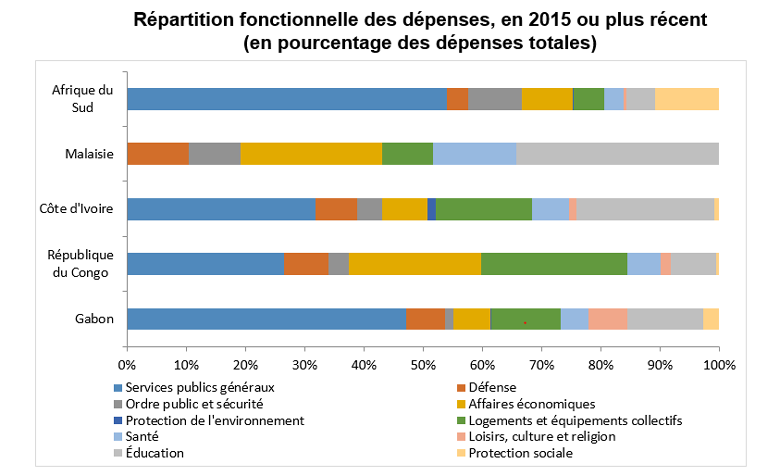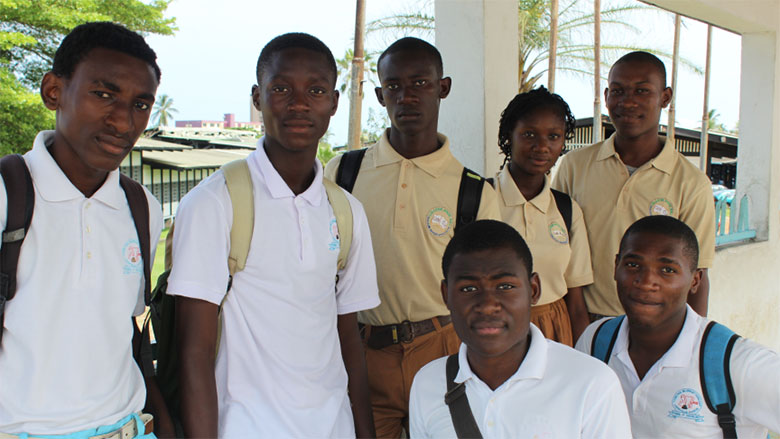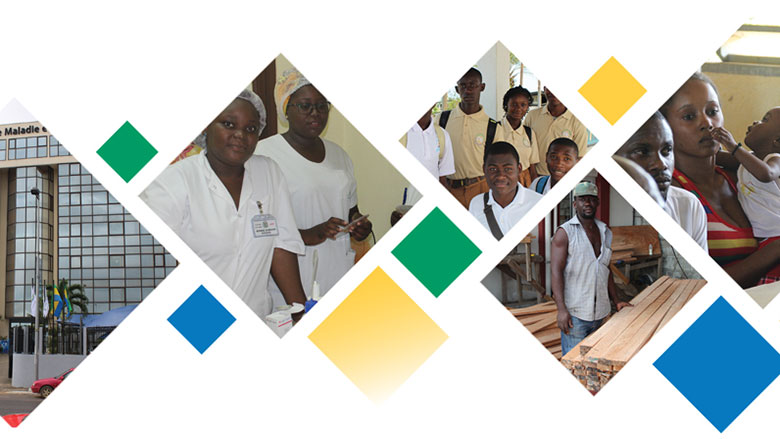LIBREVILLE, June 6, 2019―The most recent World Bank Public Expenditure Review for Gabon notes that, in view of the difficult macroeconomic environment that is exacerbating the challenges of high unemployment, poverty, and inequality, Gabon must make budgetary choices to adjust to the reduction in its public resources. However, it must also ensure that these budgetary adjustments do not affect the quality of public goods and services or hinder development.
Entitled Improving public spending quality to foster inclusive growth, this study reviews the quality of public expenditure between 2012 and 2017 and assesses whether spending patterns are in line with Gabon’s development objectives. The report focuses in particular on public spending in the education, social protection, and health sectors, which are critical to socioeconomic development and poverty reduction.
The 2014 oil price crash triggered a deep recession in the CEMAC zone, forcing countries like Gabon to prioritize fiscal consolidation to the detriment of spending on development. Gabon’s large public sector wage bill is currently the biggest expenditure item, followed by housing, health, education, and social protection.

The study proposes two priority approaches to improve the quality of public expenditure in Gabon: create additional fiscal space to allocate more resources to priority sectors and improve spending efficiency in all sectors. The Government should also allocate less funding to public administration and prioritize access to housing, health, education, and social protection.
How can the fiscal space be increased?
The Government must continue the economic diversification efforts undertaken in recent years in order to create more fiscal space in a sustainable manner. An economy with little or no diversification is more vulnerable to external shocks, as evidenced by the recent sharp decline in oil prices. Increased economic diversification would enable Gabon to generate new revenue sources and mobilize more domestic resources, while creating more employment opportunities for future generations. Shorter-term solutions nonetheless exist to help the Government fast track fiscal consolidation.
Below are some of the myriad recommendations that could be implemented in the short term:
- Implement the new public procurement code and empower the procurement agency in order to strengthen the procurement process;
- Update the national infrastructure plan and ensure greater consistency among sector plans, requiring regular updates and reviews to ensure this consistency and planning based on realistic resource estimates;
- Improve hiring controls and implement new hiring procedures for more efficient management of the wage bill;
- With respect to non-oil revenue mobilization, develop risk indicators and classify taxpayers according to risk in order to facilitate risk-based auditing.

How can the quality of expenditure be improved in all sectors to promote human development?
The study paid particular attention to education, social protection, and health. The recent Gabonese Poverty Assessment Survey (EGEP 2) showed that poverty stood at 33.4% in 2017 and that human capital remains very low (0.45). This means that Gabon’s human capital achieves only 45% of its productive potential.
Recommendations include:
- In the area of education, increase the share of expenditure allocated to primary and secondary education in order to improve quality at these levels and access to lower secondary education in underserved areas;
- In the social protection sector, improve targeting of noncontributory services in order to have a greater impact on poverty reduction;
- In the health sector, reorient spending toward preventive care in primary and secondary health care facilities to improve patient treatment and public health outcomes.
A number of recommendations are already being implemented in several sectors, particularly in the health sector where a pilot project to introduce performance-based financing is being rolled out. In the social protection sector, a new law on the definition of Economically Weak Gabonese (GEF) was enacted and mechanisms to identify safety net beneficiaries are being reviewed.

